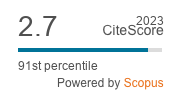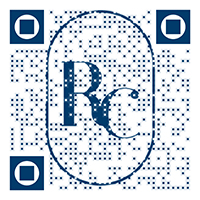Fact checking during COVID-19: a comparative analysis of the verification of false contents in Spain and Italy
DOI:
https://doi.org/10.26441/RC20.1-2021-A11Keywords:
coronavirus, COVID-19, disinformation, Spain, fake news, fact checking, Italy, Maldita.es, discursive narratives, OpenAbstract
With the spread of COVID-19 around the world, a large number of hoaxes or false and out of context news are also spreading. In the moment, the studies that have been carried out regarding the topic have mainly focused on single-territory research. For this reason, we consider it pertinent to widen the spectrum and observe the behaviour of more than just one country. More specifically, the present study compiles a comparative analysis between Spain and Italy regarding fake contents and the diverse elements that have come into play in the media during the first months of the new type of coronavirus in Europe. To do this, we have used the fact checking platforms Maldita.es and Open. Once the information was collected, we created our own database systematizing the following five elements: type, broadcasting platform, format, general topic, and discursive axis. With the objective of having an adequate sample, we have selected a period beginning with the emergence of the first cases at the end of January until the end of May 2020. The research carried out over these five months has allowed us to develop a study with which to quantitatively and qualitatively verify how the discursive characteristics of false contents related to the pandemic have developed in different ways and times in each of the territories, while also sharing a series of similar topics between both.
Metrics
References
Bochenski, J. M. (1974). Was ist autorität? Einführung in die logik der autorität. Herder. [Trad. esp.: ¿Qué es autoridad? Introducción a la lógica de la autoridad. Herder, 1989].
Bracciale, R. y Grisolia, F. (2020). Information Disorder: acceleratori tecnologici e dinamiche sociali. Federalismi.it, 11, 58-72. https://www.federalismi.it/ApplOpenFilePDF.cfm?artid=42112&dpath=document&dfile=23042020224311.pdf
Brennen, J. S., Simon, F. M., Howard, P. N. y Nielsen, R. K. (2020). Types, sources, and claims of Covid-19 misinformation. Reuters Institute for the Study of Journalism Factsheet, abril 2020, 1-13. https://reutersinstitute.politics.ox.ac.uk/types-sources-and-claims-covid-19-misinformation
Casero-Ripollés, A. (2020). Impact of Covid-19 on the media system. Communicative and democratic consequences of news consumption during the outbreak. El profesional de la información, 29 (2), e290223. https://doi.org/10.3145/epi.2020.mar.23
Costa-Sánchez, C. y López-García, X. (2020). Comunicación y crisis del coronavirus en España. Primeras lecciones. El profesional de la información, 29 (3), e290304. https://doi.org/10.3145/epi.2020.may.04
Crespo, I., Garrido, A. y Medina, R. M. (2017). La comunicación de crisis en la Administración Pública española: análisis de evidencia empírica. Gestión y Análisis de Políticas Públicas, 18, 110-134. https://doi.org/10.24965/gapp.v0i18.10465
Crespo, I. y Garrido, A. (2020). La pandemia del coronavirus: estrategias de comunicación de crisis. Más Poder Local, 41, 12-19. http://maspoderlocal.es/files/articulos/coronavirus-estrategias-comunicacion-crisis-mpl41.pdf
D’Amore, M. (2020). Comunicazione, distanziamento e socialità ai tempi del coronavirus. Cambio. Rivista sulle trasformazioni sociali, OpenLab on Covid-19. https://doi.org/10.13128/cambio- 8456
Domínguez, L. y Amador-Bedolla, C. (2020). El origen de COVID-19: lo que se sabe, lo que se supone y (muy poquito) sobre las teorías de complot. Educación Química, 31 (2), 3-11. https://doi.org/10.22201/fq.18708404e.2020.2.75461
Grandi, N. y Piovan, A. (2020a). Coronavirus: un contagio (anche) informativo. MicroMega, 3, 39-48. http://temi.repubblica.it/micromega-online/micromega-42020-dopo-il-virus-un-mondo-nuovo-presentazione-e-sommario/
Grandi, N. y Piovan, A. (2020b, 26 de marzo). I pericoli dell’infodemia. La comunicazione ai tempi del coronavirus. MicroMega online. http://temi.repubblica.it/micromega-online/i-pericoli-dell’infodemia-la-comunicazione-ai-tempi-del-coronavirus/
Kata, A. (2012). Anti-vaccine activists, Web 2.0, and the postmodern paradigm – An overview of tactics and tropes used online by the anti-vaccination movement. Vaccine, 30 (25), 3778-3789. https://doi.org/10.1016/j.vaccine.2011.11.112
Larson, H. J. (2020). Blocking information on COVID-19 can fuel the spread of misinformation. Nature, 580 (7803), 306. https://doi.org/10.1038/d41586-020-00920-w
Lazer, D. M. J., Baum, M. A., Benkler, Y., Berinsky, A. J., Greenhill, K. M., Menczer, F., Metzger, M. J., Nyhan, B., Pennycook, G. y Rothschild, D. (2018): The science of the fake news. Science, 359 (6380), 1094-1096. https://doi.org/10.1126/science.aao2998
López-Borrull, A. (2020). Fake news y coronavirus: la información como derecho y necesidad. COMeIN [en línea], 98. https://doi.org/10.7238/c.n98.2025
López-Pan, F. y Rodríguez-Rodríguez, J. (2020): El fact checking en España. Plataformas, prácticas y rasgos distintivos. Estudios sobre el Mensaje Periodístico, 26 (3), 1045-1065. https://doi.org/10.5209/esmp.65246
Losada, R. (2020). Las fake news en las crisis de la sociedad digital. Más Poder Local, 41, 48-50. http://maspoderlocal.es/files/articulos/fake-news-coronavirus-sociedad-mpl41.pdf
Mayo-Cubero, M. (2020). News sections, journalists and information sources in the journalistic coverage of crises and emergencies in Spain. El profesional de la información, 29 (2), e290211. https://doi.org/10.3145/epi.2020.mar.11
Minder, R. (2020, 7 de abril): Spain’s Coronavirus Crisis Accelerated as Warning Went Unheeded. The New York Times. https://www.nytimes.com/2020/04/07/world/europe/spain-coronavirus.html
Muñoz-Machado Cañas, J. (2020). Noticias falsas. Confianza y configuración de la opinión pública en los tiempos de Internet. El Cronista, 86-87, 122-135. http://www.elcronista.es/El-Cronista-n%C3%BAmero-86-87-Coronavirus.pdf
Negredo, S., Amoedo, A., Vara-Miguel, A., Moreno, E. y Kaufmann, J. (2020). Digital News Report (España) 2020. https://www.digitalnewsreport.es/
Observa Science in Society (2020). Gli italiani e il coronavirus. https://www.observa.it/gli-italiani-e-il-coronavirus-i-nuovi-dati-dellosservatorio/
Papapicco, C. (2020). Informative contagion: The Coronavirus (COVID-19) in Italian journalism. Online Journal of Communication and Media Technologies, 10 (3), e202014.
https://doi.org/10.29333/ojcmt/7938
Pedroni, M. (2020). Narrazioni virali. Decostruire (e ricostruire) il racconto dell’emergenza coronavirus. Mediascapes journal, 15, 24-43. https://ojs.uniroma1.it/index.php/mediascapes/article/view/16765/16121
Pérez-Curiel, C. y Velasco Molpeceres, A. M. (2020). Impacto del discurso político en la difusión de bulos sobre Covid-19. Influencia de la desinformación en públicos y medios. Revista Latina de Comunicación Social, 78, 65-97. https://www.doi.org/10.4185/RLCS-2020-1469
Pulido-Rodríguez, C., Villarejo-Carballido, B., Redondo-Sama, G., Guo, M., Ramis, M. y Flecha, R. (2020). False news around COVID-19 circulated less on Sina Weibo than on Twitter. How to overcome false information?. International and Multidisciplinary Journal of Social Sciences, 9 (2), 1-22. https://doi.org/10.17583/rimcis.2020.5386
Reggio, F. (2020). La krisis del coronavirus. Una sfida inattesa per l’essere umano e le società contemporanee. Considerazioni filosofico-giuridiche. CALUMET. Intercultural law and humanities review, 10, 118-142. http://www.windogem.it/calumet/upload/pdf/mat_98.pdf
Sala, M. y Scaglioni, M. (a cura di) (2020). L’altro virus. Comunicazione e disinformazione al tempo del Covid-19. Vita e Pensiero. https://vitaepensiero.mediabiblos.it/archivio/Sala_Scaglioni_ebook.pdf
Salaverría, R., Buslón, N., López-Pan, F., León, B., López-Goñi, I. y Erviti, M. C. (2020). Desinformación en tiempos de pandemia: tipología de los bulos sobre la Covid-19. El profesional de la información, 29 (3), e290315. https://doi.org/10.3145/epi.2020.may.15
Ufarte-Ruiz, M. J., Anzera, G. y Murcia-Verdú, F. J. (2020). “Plataformas independientes de fact-checking en España e Italia. Características, organización y método”. Revista Mediterránea de Comunicación, v. 11, n. 2, pp. 1-17. https://doi.org/10.14198/MEDCOM2020.11.2.3
Ufarte-Ruiz, M. J., Peralta-García, L., Murcia-Verdú, F. J. (2018). Fact checking: un nuevo desafío del periodismo. El profesional de la información, 27 (4), 733-741. https://doi.org/10.3145/epi.2018.jul.02
Vosoughi, S., Roy, D. y Aral, S. (2018). The spread of true and false news online, Science, 359 (6380), 1146-1151. https://doi.org/10.1126/science.aap9559
Vázquez-Herrero, J., Vizoso, Á. y López-García, X. (2019). Innovación tecnológica y comunicativa para combatir la desinformación: 135 experiencias para un cambio de rumbo. El profesional de la información, 28 (3), e280301. https://doi.org/10.3145/epi.2019.may.01
Vizoso, Á. y Vázquez-Herrero, J. (2019). Plataformas de fact-checking en español. Características, organización y método. Communication & Society, 32 (1), 127-144. https://doi.org/10.15581/003.32.1.127-144











 Portal de Revistas de la Universidad de Piura.
Portal de Revistas de la Universidad de Piura.